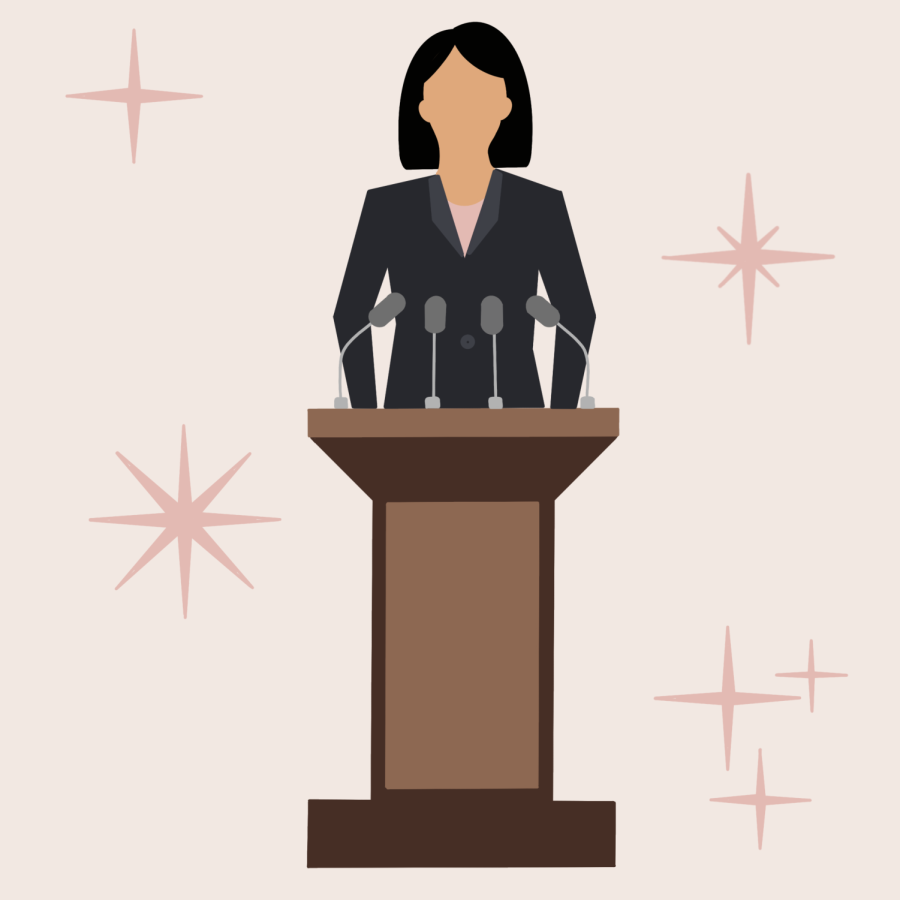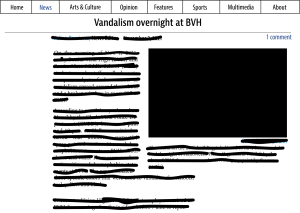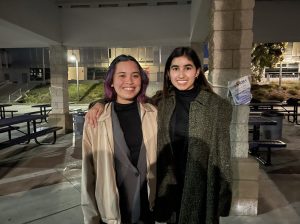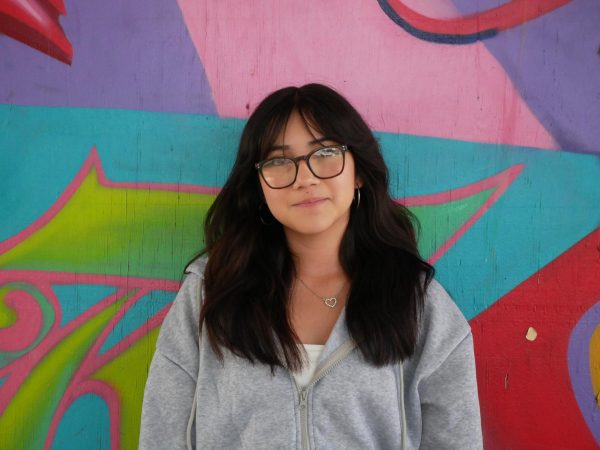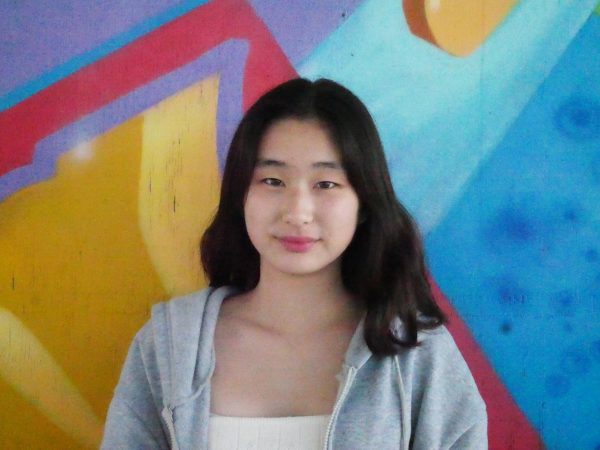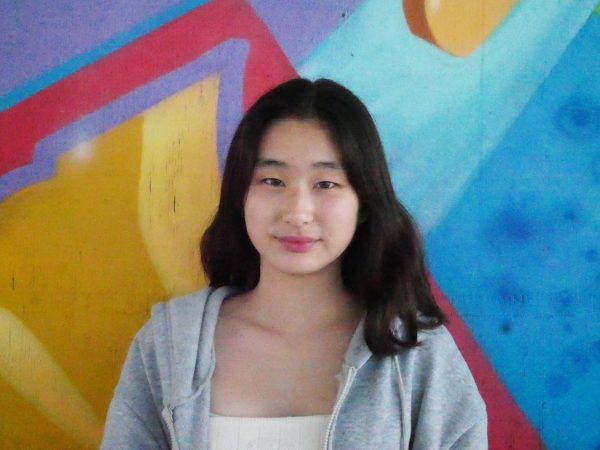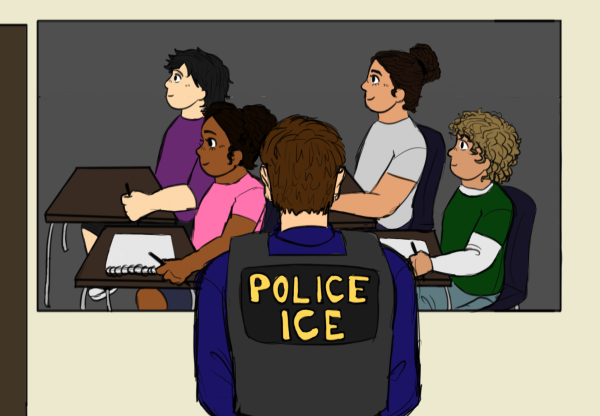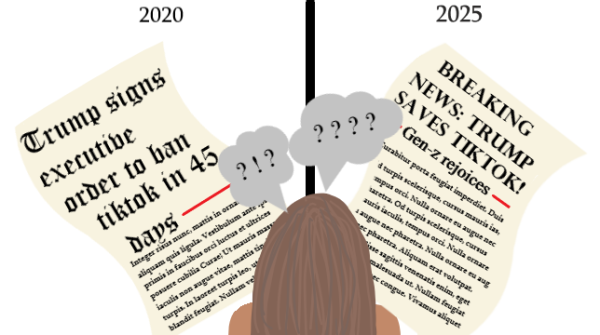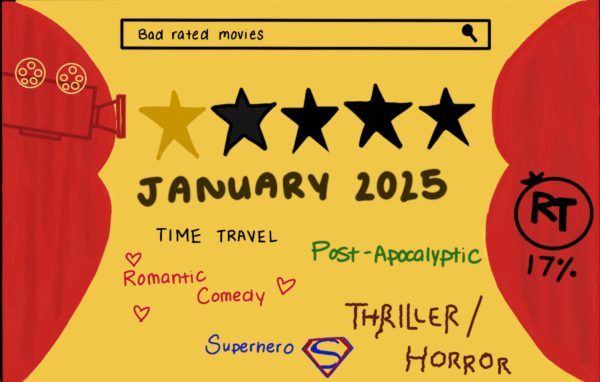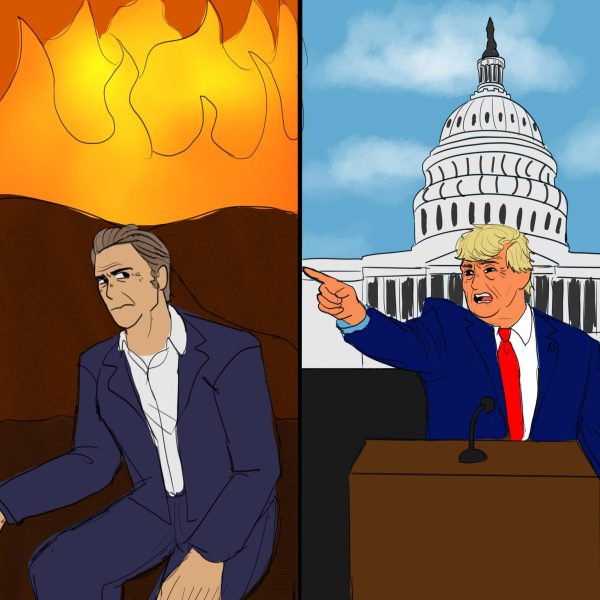Invisible no more
Advocacy through Speech and Debate
Senior and Vice President of Debate for Bonita Vista High’s Speech and Debate team Laurinne Eugenio delivers her Original Oratory speech about reforming the oppressive police system.
“@Laurinne Eugenio, please remember: forget about the competition, this is a chance for you to use your platform to advocate for something you care about! Remember this and you’ll do fine,” my Speech and Debate Coach Eric Helle said in our Speech and Debate Executive Council group chat via the Facebook Messenger app.
From Mar. 26 to Mar. 27, Bonita Vista High’s (BVH) Speech and Debate team virtually competed at the Southern California District Qualifier for the 2022 National Tournament. I was entered in both speech and debate events. My coach sent me that heartfelt message minutes before my Original Oratory (OO) Finals round; I remember smiling in reassurance.
Essentially, an OO is a written and memorized speech where the speaker discusses and addresses a social problem; the length of the speech must be no more than 10 minutes. Referring back to what my coach said, members of BVH’s Speech and Debate team made a concerted effort to integrate advocacy when crafting both speeches and debate cases.
For my OO speech, I discussed the issue of police brutality by describing its causes, its implications on real people and finally, the solutions to combat the problem. I decided to advocate for people affected by police brutality because their stories often go unheard and most especially, this topic hit close to home.
Growing up, I have always looked up to police officers because I appreciated their commitment to serving and protecting the community. This perspective was primarily fueled by how police officers were portrayed in television, shows, movies and other forms of modern media. Unfortunately, I was disillusioned by the representation of police officers when I learned of the news that took the nation by storm in May of 2020.
On May 25, 2020, Minneapolis police officers arrested George Floyd, a 46-year-old Black and unarmed man. For 9 minutes and 29 seconds, Derek Chauvin pressed his knee into the neck of Floyd, who was handcuffed and lying face-down in the street. Several minutes later, he was unconscious and showed no signs of life. This moment signified the beginning of my lack of faith and trust in the police.
Experiences of other people are difficult to sympathize with because they are not our own. I could never imagine all the grapples that came from police brutality…until it happened to me.
On Oct. 7, 2020, my older brother from the Philippines, Raymond, was on his way home from being detained for a week. It was particularly difficult for my parents because they couldn’t help their son because flights were canceled due to the pandemic.
Luckily, our attorney was able to authorize his release. On the way home, my brother sat in the back of the car, my sister drove and my parents communicated with him through a Facetime call. But, they were interrupted by eight loud gunshots aimed at him. He was shot by men riding a motorcycle in all-black outfits. Immediately after, they drove off and disappeared into the night. He was rushed to the hospital but was declared dead on arrival.
My parents, siblings and I expressed our farewells through a video call via the Messenger app that displayed my brother’s funeral.
It wasn’t until a few days after his funeral that my parents explained what truly happened. I lost my brother to police corruption and brutality.
I learned that he was detained for a crime he didn’t commit. Our attorney confirmed that the individuals who killed my brother were sent by the police officers who pursued charges against him but failed.
After the death of Kuya (older brother in Tagalog), the days blurred. My feelings of anger were supplemented by a sense of helplessness; I was angry because I was helpless and I was helpless because I felt that I could do nothing. To escape that cruel reality, I distracted myself with social media. As I scrolled through Instagram, I encountered posts about increasing police brutality in America. I empathized with them because of Kuya’s death, he lost his life in the same hands as those who pledged to protect society. From this, I realized, the best proponents of change came from advocacy by ordinary people.
The word “advocate” reminded me that I do have platforms; I wasn’t helpless. Gearing up for Speech and Debate’s 2021 to 2022 school year, it was time for students to pick and craft a speech about a topic they are passionate about and want to advocate for. I didn’t even have to think twice about my topic.
From my personal experience, I have a moral obligation to be an advocate against injustice so I crafted my speech about reforming the oppressive police system. Looking back, sentiments of grievance morphed into acceptance and perseverance. Kuya’s voice was unheard, but I realized that it was time to be loud. Although I couldn’t advocate for him, I prioritized becoming a voice for those who are unable to speak for themselves.
Moving forward, I’m exhilarated to participate in the National Speech and Debate Tournament at Louisville, Kentucky during the summer along with fellow BVH Speech and Debate team members. Beyond this, words cannot express how fortunate I am to be competing in the event of OO, where I have the opportunity to share my story and continue advocating for people who might have felt invisible in their battle against police brutality.
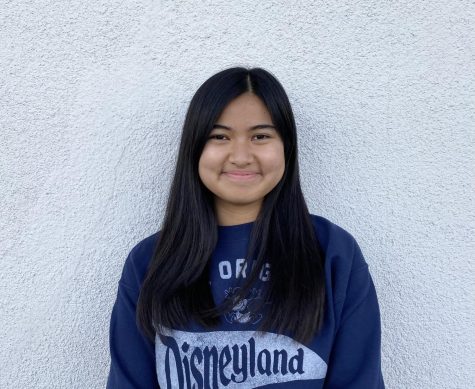
I am a senior at Bonita Vista High and a third year staff member on the Crusader. This year, I am co-Editor-in-Chief, and previously was Opinion Editor...

